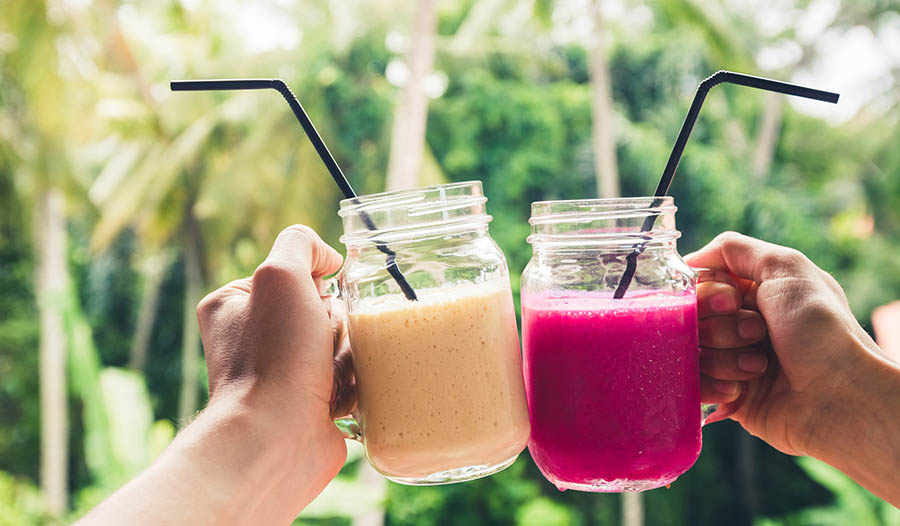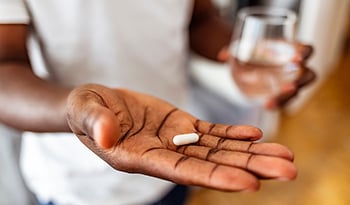8 Antioxidants to Incorporate Into Your Diet
DISCLAIMER:This blog does not intend to provide diagnosis...
- In this article:
- Antioxidant basics
- Where do antioxidants come from?
- Important Antioxidants Needed for Strong Nutrition
- Vitamin A
- Vitamin C
- Vitamin E
- Beta-carotene
- Lutein
- Lycopene
- Anthocyanins
- Catechins
- Antioxidant Rich Smoothie Recipe

You’ve probably heard that you should be incorporating more antioxidants into your diet, but what exactly are antioxidants and where can you find them?
Antioxidant basics
Antioxidants are substances that help protect our bodies from “free radicals” or unstable molecules capable of doing damage to our cells. Free radicals are formed during normal bodily processes like eating and exercising, or when we’re exposed to toxins like pollution or cigarette smoke.
Antioxidants can help neutralize free radicals and decrease the potential damage they might cause to our cells (also known as oxidative stress).
To put it another way, free radicals are the “bad” guys, and antioxidants are the “good” guys, swooping in to keep these culprits from destroying the place.
Where do antioxidants come from?
The best source of antioxidants is food, especially richly colored fruits, vegetables, and whole grains. A well-balanced diet with lots of different colors will provide you with a good amount of antioxidants. Aim for at least 3–5 servings of fruits and vegetables each day. Antioxidants can also be found in tea, coffee, and dark chocolate.
Talk with your doctor or dietitian if you’re looking to supplement your diet with specific antioxidants. Dietary restrictions, specific health issues, and evolving research are important factors to consider before taking isolated forms of antioxidants. Also, beware that some vitamins (such as vitamin A) can be toxic in large doses.
Important Antioxidants Needed for Strong Nutrition
It’s important to note that there are thousands of antioxidants and we haven’t even identified all of them yet. They all serve some purpose and many of them work together, which is why it’s important to eat a variety of foods.
Vitamin A
Vitamin A is important for good vision and helps maintain a healthy immune system, strong teeth, and healthy skin. Good food sources include eggs, meat, and dairy.
Vitamin C
Vitamin C aids in bone growth and repair and is important for wound healing. Vitamin C may also help prevent colds or make them go away faster and can help the body better absorb iron. Good food sources include citruses, such as oranges and grapefruit, bell peppers, strawberries, and broccoli.
Vitamin E
Vitamin E is important for healthy skin and eyes as well as a strong immune system. Good food sources include vegetable oils (olive, sunflower, canola), eggs, nuts, and green leafy vegetables.
Beta-carotene
Beta-carotene is quickly converted to vitamin A in the body and is important for good vision, strong immunity, and general health. Good food sources include carrots, sweet potatoes, winter squash, spinach, kale, cantaloupe, and apricots.
Lutein
Lutein is often referred to as the “eye vitamin” because it may be effective in reducing the risk of cataracts and age-related macular degeneration. Good food sources include spinach, kale, corn, and squash.
Lycopene
Lycopene may play a role in preventing prostate cancer and cardiovascular disease. Good food sources include red fruits and vegetables such as tomatoes and watermelon. The richest sources of lycopene are in the more concentrated forms of tomatoes like ketchup, tomato juice, and pizza sauce.
Anthocyanins
Anthocyanins are associated with heart health and may help with weight and diabetes management. Good food sources include red, purple, and blueberries, pomegranates, red and purple grapes, and red wine.
Catechins
Catechins may improve cardiovascular and neurological health and help with chronic fatigue syndrome. They can be found in green, white, and black teas.
Antioxidant Rich Smoothie Recipe
Ingredients:
- 8 oz. unsweetened almond milk
- 1 heaping cup fresh or frozen strawberries
- 1 packed cup fresh kale leaves
- 1 cup frozen blueberries
- 1 ripe peeled banana, fresh or frozen
- 1 Tbs. nut butter
- Dash ground cinnamon (optional)
Instructions:
- Add all ingredients to a blender
- Blend until smooth.
- Serve with sliced strawberries or blueberries on top.

 By Alysa Bajenaru, RD
By Alysa Bajenaru, RD


